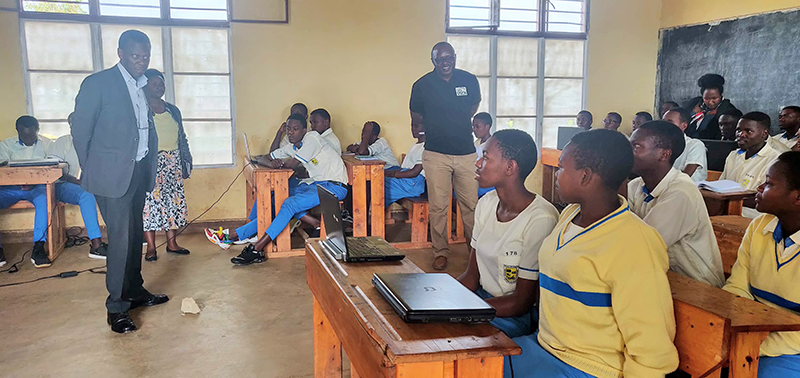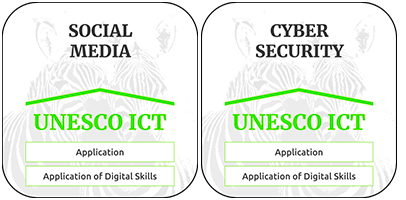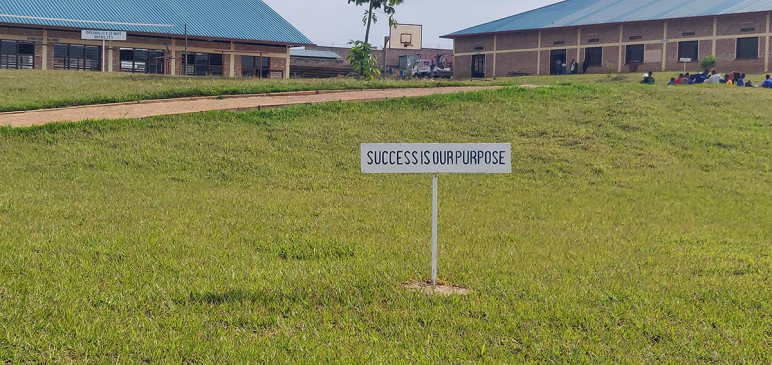SkillSafari has been working with the Rwanda Education Board (REB) since 2018 on teacher skills validation with Open Badges. The overall scope of the work has been to examine if badges could work as a supplementary tool in the teacher professional development activities offered by REB.
The collaboration led to a joint pilot project executed in the spring of 2020 to test the usability of the badging approach to see how teachers respond to it and if REB could draw valuable data on teachers development from the process. Attached to the project Satu Järvinen and Pete Stockley conducted research on learning triggers the support teachers advancement during the badging process. The reason to focus on learning triggers was due to a specific interest in researching what causes teachers to apply for badges in general or specifically to any particular badge. A secondary reason was to understand the motivational factors of teachers taking part in the project.
The project scope was looking at how well the pilot group teachers mastered the UNESCO Teacher ICT Competency framework Level 1 skills criteria. REB has earlier prepared an online course for teachers targeting the UNESCO framework skills. We decided to align our pilot with the course since it allowed us to see how badges could work together with the online content to create a more comprehensive teacher professional ICT skills development environment.
We have been using the Open Badge Factory and the accompanying Open Badge Passport in private and publicly funded projects since 2013 and have been key figures in its development. Open Badge Factory was not the only badging deployment tool considered for the pilot. The Rwanda Education Board have been using Moodle, a free, open-source learning management system which can also function as a badge deployment tool, so Moodle was considered as well. However, the Open Badge Factory has many functions that lend credibility to the services that adopt it, which is why it was chosen as the primary tool for this project. These features include the option for users to send in applications for badges to be reviewed by a with their evidence attached.
Execution of the pilot project
A website was created to function as a launch pad for the pilot. Here teachers would have access to: The introduction, purpose and flow of the application process; the list of badges themselves with evidence criteria and learning materials; a completion tracking chart and a demonstration badge to understand how a successful application should occur.
The site can currently be viewed in its entirety here: http://reb.skillsafari.io/
The REB gathered 33 teachers to participate in the pilot and a WhatsApp group was created to communicate directly to the pilot teachers throughout the entire pilot duration. 13 teachers left the pilot early on but 7 new teachers joined through positive word of mouth, making a total of 27 teachers participating.

Three surveys were carried out: Pre, During and Post pilot surveys. These became the source of data for the findings.
The Pre-pilot survey gathered general profile data such as age-group and teaching experience. The During-pilot survey collected a response after every badge application and asked for reasons on choosing that badge and motivation related impacts (time needed, difficulty level and likelihood to apply for another badge).
The Post-pilot survey asked for overall experience ratings to validate the responses from the During-pilot data, feedback and improvement suggestions.
Overview of the results
Overall the project was a success, even though the outburst of COVID-19 that resulted in a sudden closure of schools in the middle of the project did have it’s effects with some teachers losing access to computers and the school Internet network. However, most teachers were able and willing to pursue the project despite the change in circumstances and we did not witness any drop in the amount of applications. The COVID-19 implications came through more in teachers asking for extended time to continue applying for badges when the initial application period of little over two weeks was coming to an end.
During the entire project the teacher’s motivation to gain badges remained high. Even though some badges were clearly more challenging and required more time for teachers to gather evidence to, the measured motivation level remained more or less constant throughout the project. Teachers completing all the badges that were part of the project indicated a high interest in applying for more even after their last badge application.

The main reason for teachers to apply for badges that came through from the during-pilot survey that came through very clearly was the interest to see if they had the necessary skills to earn any particular badge. The overall interest to understand personal skill levels when measured against a specific skill framework had great value for the pilot project teachers. The secondary trigger leading to applying for badges was believing with a certain level of certainty that the teacher already has the necessary skills. Unlike in research done previously in Finland, tha gamification elements of the badging approach had a smaller role for teachers in Rwanda.
Overall the teachers reported a high level of interest in taking part in another similar programme in the future. They also felt that the badges helped them understand their skills because they had to provide evidence to back up their badge applications. They also found the possibility to track their progress with the help of individual progress charts we provided very useful. In terms of improvement, the teachers would have appreciated being provided with mobile internet, especially after the school closure. Something also valuable they pointed was a reward system built in to the process, so that the ability to demonstrate a certain level of skills would lead to some form of professional rewarding. This related well with findings from other teacher professional development and motivation research done in the African continent. So overall the experience was positive. In terms of triggers, we were happy to find through the process that the opportunity to measure one’s skills is a main driver in a badge driven process. That can be taken into account more when planning for future projects.
Looking at the future
The pilot offered valuable small-scale data for designing further badging projects for similar target groups including essential prerequisites and a template of it’s essential parts: The launch site, communication channel, tracking etc. and even birthed some early-stage customer personas to be developed further.
Despite the small number of pilot teachers, the desire for further badge based CPD in sub-saharan Africa is positive and the potential research in this environment is great.
In the future we hope to expand this pilot to more countries that have shown interest in the badging approach. We also want to expand the amount of badges offered to cover all UNESCO ICT skill levels and non-ICT related skills as well.
Kirjoittajat: Satu Järvinen | SkillSafari ja Pete Stockley | Omnia
Lisätietoja
Satu Järvinen
SkillSafari
satu@skillsafari.io

